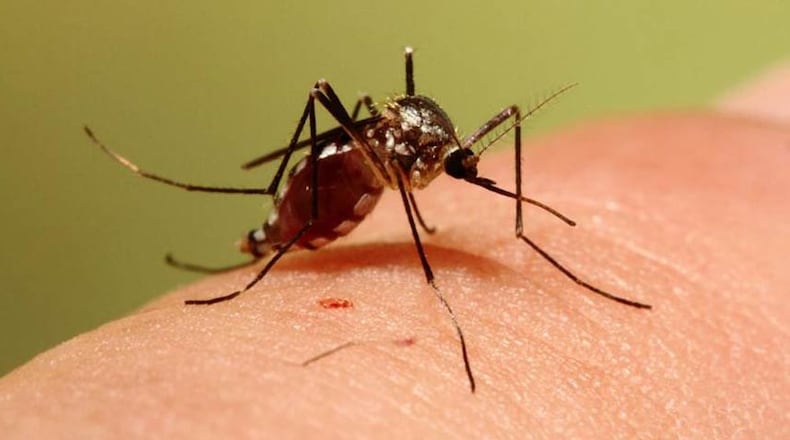Weather-permitting, Greene County Public Health’s Environmental Health Mosquito Team will treat those locations Monday with adulticide, a type of insecticide used to kill adult mosquitoes. GCPH also will continue to monitor mosquitoes in surrounding communities.
Staff have been trapping mosquitoes since June and will continue to do so until October, concentrating on human population centers, public health said Friday.
West Nile is a virus most commonly spread by infected mosquitoes that can lead to severe fever, encephalitis or meningitis (brain and spinal cord inflammation disorders), according to public health. Severe cases can become life-threatening.
The last time a person tested positive for West Nile virus in Greene County was August 2017, said Laurie Fox, public information officer with GCPH. Prior to that was an even longer stretch of time between cases.
“That was the first case of West Nile in a human since 2006 in Greene County,” Fox said.
How the virus can affect people’s health varies, with some not even realizing they have it.
“Most people that get it don’t even have symptoms,” Fox said.
About eight out of 10 people infected won’t develop any symptoms, according to the Centers for Disease Control.
If they do experience symptoms, the more common ones include fever, headaches, body aches, joint pain, vomiting, diarrhea, a rash, and/or fatigue.
The primary carrier in Ohio is the northern house mosquito, Culex pipiens. Mosquitoes become infected when they feed on infected birds, and then can spread the virus to humans and other animals when they bite, the health department said.
Jeff Webb, Greene County Public Health environmental health services director, is reminding everyone to be aware of their exposure to mosquitoes and how to protect themselves.
- Eliminate standing pools of water, such as birdbaths, gutters, old tires, unused pools, boats and buckets;
- Avoid shaded areas where mosquitoes may be resting;
- Limit outdoor activity during evening hours;
- Wear protective clothing such as light-colored, long-sleeved shirts and pants;
- Use insect repellents (those containing DEET can be very effective; follow manufacturers’ usage recommendations).
The best way to protect yourself from West Nile virus is to keep from getting it, Fox said. “Overall, prevention is the key.”
Public Health officials will continue to monitor for mosquitoes by checking for standing water, applying larvicide, trapping and testing mosquitoes, and spraying adulticide, if indicated.
For more information about mosquito control or to contact Environmental Health Services, call 937-374-5661 or email mosquitoteam@gcph.info.
About the Author

